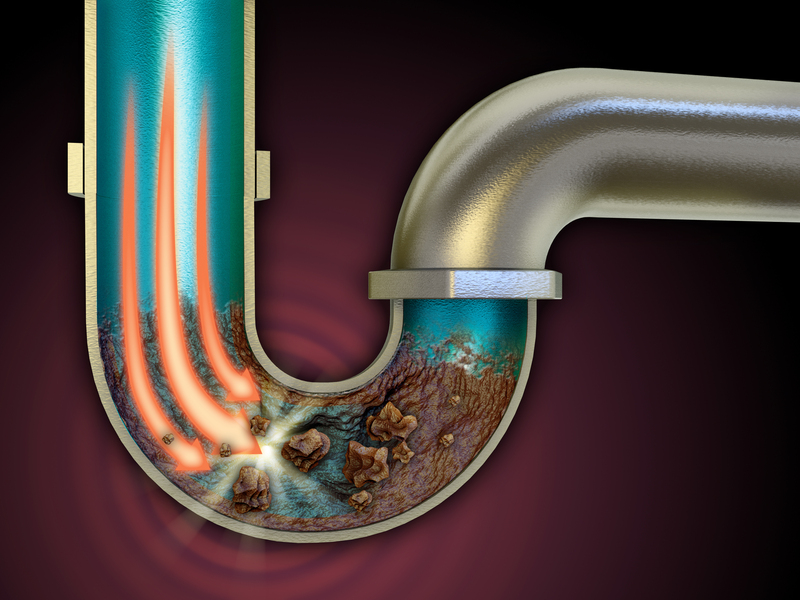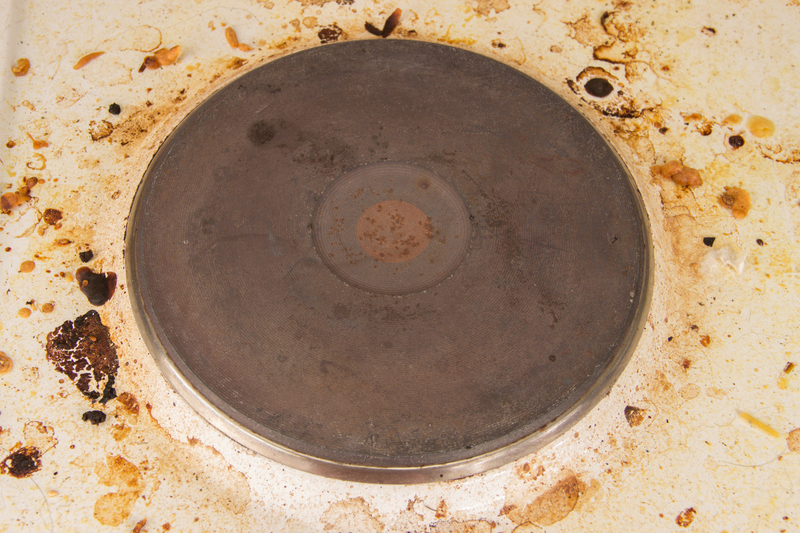Well-Ordered House, Clear Thoughts
Posted on 03/09/2024
The connection between our physical environment and mental state is often underestimated. A disorganized living space can lead to increased stress, anxiety, and even depression. Conversely, a well-ordered house can significantly enhance our mood, productivity, and overall mental clarity. This article delves into the profound impact of maintaining a tidy home and offers practical steps to achieve a space that fosters clear thoughts and tranquility.
Understanding the Psychological Impact of Clutter
Clutter is more than just physical mess; it represents unfinished tasks, unmade decisions, and chaos. Studies have shown that cluttered environments can overload our senses, reduce our ability to focus, and increase cognitive overload. The University of California conducted a study revealing that women who described their homes as cluttered exhibited higher levels of the stress hormone cortisol than those who described them as restorative.
Moreover, clutter can stifle creativity and productivity. When surrounded by mess, our brain finds it harder to filter information. This mental load can impede our ability to think clearly and make decisions. Hence, a well-ordered house directly contributes to better cognitive function and emotional well-being.

Benefits of a Well-Ordered House
Reduced Stress Levels
One of the foremost benefits of a well-ordered house is the reduction of stress. When every item has a designated place, and the home is free from clutter, there is less visual and mental distraction. This organization translates to a calmer mind. Knowing where everything is can prevent the last-minute scramble to find things, reducing daily stress and making routines smoother.
Enhanced Focus and Productivity
A clutter-free environment allows the brain to concentrate better. Whether you're working from home, studying, or engaging in a hobby, a tidy space can bolster your focus and efficiency. The brain processes information more effectively in an organized setting, freeing up cognitive resources for more critical tasks.
Improved Mood and Mental Health
A clean and organized home can have a profound impact on mood and mental health. Clutter can be a physical manifestation of anxiety, while a tidy space can evoke feelings of calm and control. Moreover, the act of cleaning itself can be therapeutic, offering a sense of accomplishment and a tangible way to improve one's environment.
Better Sleep Quality
A messy bedroom can negatively impact sleep quality. An organized and serene sleeping environment can promote better sleep hygiene, contributing to overall wellness. Tidiness reduces sensory overload and helps create a relaxing ambiance, essential for a good night's rest.
Practical Steps to Achieve a Well-Ordered House
Declutter Regularly
Begin by systematically decluttering your space. Tackle one room at a time, and be ruthless about what you truly need. Consider adopting the KonMari method, where you keep only items that "spark joy." Regular decluttering sessions can prevent mess from accumulating and make the task less overwhelming.
Create a Cleaning Schedule
A routine cleaning schedule ensures that tidying up becomes a habit rather than a chore. Assign daily, weekly, and monthly tasks to keep your home consistently clean. Daily tasks might include making beds and washing dishes, while weekly chores could involve vacuuming and dusting. A scheduled approach prevents the buildup of dirt and clutter.
Utilize Storage Solutions
Invest in effective storage solutions to keep your belongings organized. Shelving units, storage bins, and drawer organizers can help maximize space and keep items orderly. Labeling containers can also make it easier to find things, reducing the time spent searching for misplaced objects.
Adopt Minimalism
Minimalism is not about depriving yourself but about focusing on what adds value to your life. By reducing excess, you can create a more streamlined and enjoyable living space. This approach encourages intentional living and helps you appreciate the items you truly value.
Implement a "One In, One Out" Rule
To maintain a clutter-free home, adhere to a "one in, one out" rule. When you acquire a new item, let go of an old one. This practice prevents the accumulation of unnecessary possessions and keeps your home manageable.

The Emotional Aspect of a Well-Ordered Home
The state of our living space can significantly affect our emotions and mental health. An organized home can evoke feelings of pride and comfort, while a cluttered environment may induce shame and frustration. Taking control of our surroundings can foster a sense of autonomy and accomplishment, essential for emotional well-being.
Moreover, a tidy space can enhance social interactions. Inviting friends or family over becomes more enjoyable when you feel confident about the state of your home. This connection between a well-ordered house and social engagement can further boost your mood and mental health.
Conclusion
A well-ordered house is more than just visually appealing; it is a cornerstone of mental clarity and emotional well-being. By understanding the psychological impact of clutter and implementing practical steps to maintain an organized home, you can significantly enhance your quality of life. The effort put into creating a tidy space is an investment in your mental health, providing a tranquil haven that nurtures clear thoughts and a calm mind.
In summary, the benefits of a well-ordered house are multifaceted, impacting stress levels, productivity, mood, and sleep quality. By cultivating habits of regular decluttering, cleaning, and adopting a minimalist approach, you can transform your living environment into a sanctuary of peace and clarity.
Latest Posts
Expert Tips for Hassle-Free Bathroom Cleaning
A Gleaming Finish: Tried and True Methods for Banishing Grease from Your Oven
Changing Sheets Best Practices






